|
10/24/2019 The Apostolate of Accompaniment: Creating an Environment of Accompaniment in Our ParishesRead NowWhen people speak about the work of evangelization or accompaniment, they often speak about going out to the margins, “to the highways and the hedgerows” (Luke 14:23,) to bring the “nones” and the unbaptized into the Church. This is, of course, an essential part of Jesus’ final commission to his apostles to baptize and make disciples of all nations (Matthew 28:16-20). But I have to wonder: what’s the state of spiritual health in our own parishes? Are the lay faithful aware that their sacramental experience is an encounter with Christ, and do they care about their brothers and sisters with whom they share Communion? Are the people in our pews accompanied by anyone in their journey of faith or are they trying to live their faith on their own? There are many definitions for spiritual accompaniment, but in the book I co-authored with Colleen Campbell as a resource for the Catholic Apostolate Center, we define spiritual accompaniment as “the apostolate of intentional relationship that is oriented toward a definitive direction of growth in holiness and transformation in the Person of Christ.” In general, accompaniment is “a broad term that refers to a relationship between two or more people who share mutuality and reciprocity in the spiritual life” (The Art of Accompaniment). I believe this “apostolate” of accompaniment is essential to a parish’s spiritual health for three main reasons: First, creating a culture of accompaniment in the parish enables the lay faithful to be who they are called to be by their baptism. In the Rite of Baptism, we receive the Holy Spirit and we are made members of Christ’s Body. As members of the same Body, we have a responsibility to bring the light and love of Christ to one another. As Paul writes in First Corinthians, the various parts of the body must have concern for one another because we need each other (1 Corinthians 12:21-26). When members of the lay faithful take an interest in one another’s faith journeys, encouraging one another on that journey, they are living their Christian vocation as the Church intends. When members of the lay faithful are not concerned for members of their parish community, they become spiritually stunted and begin to believe that faith does not require community in one Body. Second, accompaniment helps a parish to become the best ordinary place of encounter with Christ. The parish is the most likely place where an individual begins his faith journey. Churches that sit on familiar street corners appear as safe havens for those who seek the Lord or some other help. The parish must embrace a culture of accompaniment so that when individuals approach it seeking communion, they are met with a warm and welcoming response instead of sacramental hoops or parish boundary restrictions. Accompaniment challenges parish staff and parishioners to “[respect] the dignity of the human person, and [seek] to increase their freedom to respond to the all-encompassing love of God within their life” (The Art of Accompaniment). Finally, it’s important that we implement a culture of accompaniment in our parishes because one of the goals of accompaniment is liturgical worship, and this can only take place in the parish. Sacramental theology reminds us that the sacraments are how Jesus accompanies and remains with his Church in a physical way (CCC 1088). Accompaniment’s goal is “transformation in the Person of Christ,” and if the lay faithful are serious about accompanying one another, they will encourage one another to seek out liturgical life at the parish, because the sacraments sanctify us, build up the body of Christ, and give worship to the One who Accompanies. For more resources on Accompaniment, please click here. To purchase The Art of Accompaniment, please click here.
0 Comments
Can you imagine yourself as one of the apostles? Put yourself in their shoes. You were moved by Jesus. His teachings spoke to your heart. When you were with him, you felt incredibly alive, free, loved and full of hope. No one persuaded you; you wanted to follow him. You were there when Jesus fed the 5,000, gave sight to the blind, and raised a young man from the dead. He received a royal welcome into Jerusalem. You celebrated Passover with him. You were also there when the soldiers came and dragged Jesus off to be crucified. Scared for your own life, you hid in the shadows abandoning him to death on the cross. You were a puddle of fear, sadness, anger, and despair. You disgust yourself. Disoriented, you stumble upon the others. You look to Peter but that rock is crushed, broken by grief and disbelief. The Sabbath comes and goes. It’s over—time to pick up the pieces of your life and move on. But just as you begin to leave, two female disciples arrive with astonishing news. Jesus is alive! Remember the mountain in Galilee? Remember what he said? Go there and you will see him. Of course, you go. You gather with the other disciples and make arrangements for the journey. It will take four days. Along the way, you cry, confess, and tell stories. You see the mountain in the distance. A lone person is descending from the top. Before you know it, Jesus is approaching you. You are gaping-mouth-open astonished. Some fall down to worship him. Others cannot believe it. Peter collapses to his knees. And still, Jesus approaches. He embraces you. You are alive again. Jesus reaches out to everyone. He turns to Peter last, lifting him up, restoring his strength. Jesus calls you together. "All power in heaven and on earth has been given to me. Go, therefore, and make disciples of all nations, baptizing them in the name of the Father, and of the Son, and of the Holy Spirit." He pauses here, letting his eyes meet each one of us. Some of us are giddy with joy, others cannot stop the tears. "Teaching them to observe all that I have commanded you." Suddenly, your heart begins to burn within you. You have a lot to say, a lot to share, a lot to tell. You remember with crystal clarity everything he taught, every moment he was with you, all the experiences you shared. You know now who you are and what you are about. It is time to go. But you hesitate. You want to stay. Jesus knows your heart. He is speaking again. Amazingly, he is talking to everyone and only you at the same time. "Behold, I am with you always, until the end of the age." Stay here. Stay with Jesus resting his eyes in yours. You have a lot to offer. You know who you are, what the Lord means to you, what he asks of you, and what he has given you. The stark truth of mission is hard to believe. God sends you into the world because there is something the world needs that only you can give. World Mission Sunday reminds us that we are sent to the whole world. As disciples of Jesus, there is no place or people beyond our sphere of concern. Pope Francis reminds us that mission is an "immense work of mercy, both spiritual and material." Last year, many of us “walked with Francis.” This year, let us be with Pope Francis in the mission of mercy. Let us renew our call to mission - to care about everyone, everywhere. I offer three suggestions on how to renew the call to mission:
Jesus is sending us out to all nations and he will be with us always. We will be astonished at how the Lord will reveal himself to us through mission. It is time to go. **This post was originally posted on October 20, 2016. There are several times throughout Scripture that I disagree with Jesus--today’s Gospel being one of them. Anytime I’ve experienced disappointment, injustice, or suffering, I have eloquently told Christ in exasperation, “this sucks,” or “I don’t like this,” or “my way is better.” I could use the same responses to Christ’s words today: “love your enemies…pray for those who persecute you…be perfect.” Are any of these things possible? In a word, no—if attempted alone. But God did not make man and then place impossible expectations on him. As Pope Benedict XVI is often attributed as saying, “you were not made for comfort, but for greatness.” And so, while Christ’s demands may seem unrealistic to every fiber within me, they guide me towards excellence—or, to use Jesus’ word, perfection. This perfection was the status of Adam and Eve prior to the Fall, and in an instance of particular grace, of the Blessed Virgin Mary. Baptism is the first step that allows us to grow in the perfection of the Father. Through it “we are freed from sin and reborn as sons of God; we become members of Christ, are incorporated into the Church and made sharers in her mission” (CCC1213) As sons and daughters of God, we are called to become like our Father. Baptism is the first step taken that enables us to be perfect as our heavenly Father is perfect. From there, we are called to cooperate with God’s grace in order to be transformed. It’s easy to think of our enemies as people bearing swords and armor, but my enemies do not have to be people who dislike me or who do not will my good. I can perceive a neighbor with jarring political views, or a family member with a pointed critique, or a gruff co-worker to be an enemy simply because they may injure my pride or annoy me. The complexity of human relationships and our own woundedness almost ensures that we may perceive enemies in any person—within our friends, family, church, community—at some point in our lives. And yet we are called to love those people and pray for them– especially the ones that may be closest to us. Jesus tells us that loving enemies involves not only doing acts of charity and extending forgiveness, but also praying. Intercessory prayer for our enemies is a form of charity. It means you are thinking about someone who has slighted you and lifting them up to God. It means blessing them in the midst of your hurt or wounded pride and willing their good in spite of it. It means you are engaging with your pain rather than avoiding or ignoring it—a humility which opens your heart to God’s grace and gives God room to work for his glory. It is for this reason that Jesus says to pray for those who persecute you. This relationship between prayer and charity is fundamental to the Christian life and guides us towards the perfection of the Father. Being a Christian should set you apart from the world. “If you love those who love you…what is unusual about that?” Jesus asks. The human way responds with “love your neighbor and hate your enemy.” That’s my first response, too. But the God who made man also knows what we are capable of and what he intended us for. And that is to be like him and share in his divine life. So, if God is love, we are called to be love. And this is made manifest in loving your enemies, praying for those who persecute you, and striving for Godlike perfection. As I’ve mentioned, it’s ok if this seems hard or even undesirable. I’m often reminded of the Scripture passage, “While the Spirit is willing, the flesh is often weak.” While Christ’s commands may sound honorable in theory, they are incredibly difficult in the heat of the moment or in the daily grind. But I believe the point Christ is reiterating in this passage is the need for radical charity—one which is given though not deserved. It was this charity that enabled Christ to look into the eyes of those who tortured and crucified him and say, “Father, forgive them, they know not what they do.” This—this is what separates the Christian from the rest of the world. And it is not reserved for Christ or Mary or for humanity before the Fall—it is possible for each and every one of us if we but open ourselves to God’s grace. The saints learned this well. I remember reading, for example, in the Diary of Faustina about an unjust instance with a priest who interrupted her confession and told her to come back that evening, only to ignore her and send her home that night. Immediately, Faustina praised God, prayed, and offered up sacrifices for this priest. Without a moment’s hesitation, she loved her enemies, prayed for those who persecuted her, and therefore imitated the perfect charity of the Father. As we continue to follow Christ, may we ask for the strength to follow in the footsteps of the saints in order to be perfect as our heavenly Father is perfect. Questions for Reflection: Do you find Christ’s words in today’s Gospel difficult? What’s one step you can take today towards loving your enemies? Two forces have particularly influenced my life. The first is my Catholic faith – given by my parents and nurtured by others as I grew. The second is my adulthood experience with obsessive-compulsive disorder (OCD). In wrestling with both of these forces (at times feeling like Jacob, who wrestled with God), I accidentally discovered a saint whose experiences reflected my own. Saint Dymphna lived in Ireland during the seventh century, after the time of Saint Patrick, Saint Brigid, and Saint Columba. Christianity was practiced by many – including Dymphna’s mother, who had her daughter secretly baptized. Dymphna’s father was a pagan king named Damon. Dymphna’s mother died when Dymphna was just 15 – throwing her father into a terrible grief. Damon’s counselors advised him to remarry, and though they searched for another wife, they found none. They then advised Damon to marry his daughter, who reflected her mother’s great beauty. Initially repelled, Damon eventually agreed and proposed to his daughter. Under the guidance of her confessor priest, Saint Gerebran, Dymphna rejected her father’s proposal, and fled Ireland for Belgium. Tradition states that Dymphna then built a hospice in Geel for the sick and the poor, where she remained for some time. Soon, Damon and his men traced Dymphna’s journey, and ascertained her whereabouts due to Dymphna’s use of foreign currency. Confronted by the mad king, Saint Gerebran rebuked his behavior, and Damon had his men kill the priest. Still hoping to win his daughter, Damon then pleaded kindly, offering wealth, prestige, and honor. Dymphna, steadfast in her vow of chastity, rejected the offer – and by her own father’s sword was beheaded. Soon after Dymphna’s martyrdom, several “lunatics” spent the night in the countryside where Dymphna died, and woke up in the morning healed. This miraculous place became known throughout Europe: a church was eventually built in the 1300s, with a sanctuary expansion built to accommodate pilgrims seeking mental relief. Townspeople themselves even began taking them into their homes, a tradition that continues to this day. Saint Dymphna entered my own life in a chance way seven years ago, near the onset of my OCD symptoms – which involved uncontrollable obsessions and time-consuming “checking” behaviors. Around this time, I discovered in my bedroom a prayer coin invoking Saint Dymphna. I do not recall where this coin came from – and I certainly had never heard of Dymphna before. But the prayer on the back captured me: “Oh St. Dymphna, Patroness of nervous and mental illnesses, grant that, through prayer, I may be pure in mind and soul.” Fascinated by her story and her Irish identity, I began to read, learn, and ask in prayer for her help. This relationship deepened and developed into my own pilgrimage to St. Dymphna’s church in Geel – which was closed when I reached Belgium! Nevertheless, she has continued to inspire my journey from OCD sufferer to OCD advocate, and I am more convinced than ever that she is a great intercessor and resource in our current Age of Anxiety. Below are some brief meditations on Dymphna’s continued influence on my life: 1. Dymphna kept faith even in grief. We all know how grief challenges our faith. Not only did Dymphna lose her mother, but she also had to tread the impossible tightrope of consoling her father while recognizing that his sickness was warping him. This must have torn at Dymphna’s heart. Yet even amidst suffering, she did not stop hoping in God’s providence. In my own life, losing my brother six years ago in an accident severely challenged my faith in God. During this time, I believe Saint Dymphna’s help guided me back to a place of trust and hope. 2. Dymphna chose the path of unknowing and vulnerability. By fleeing to Geel, Dymphna took a major-league risk and rejected the familiarity of her native land. Yes, she was momentarily safe from the king – but incredibly vulnerable as a foreigner and refugee. In many ways, staying home and appeasing her father would have been the “safe” choice. OCD constantly tempts me with gaining “safety” at the cost of doing ridiculous compulsions. While it’s terrifying to reject what OCD wants me to do (“Think hard enough and you’ll have peace!”), I have to respond by saying, “I’m willing to be anxious and unknowing, so I can live a real life.” That Dymphna, Patroness of mental illness, was beheaded, indicates to me that I must abandon relying on my brain, and embrace God and that which I cannot see or “figure out.” 3. Dymphna perfected her own authority and freedom to choose. In standing up to Damon, Dymphna inspires all of us who face temptation and all who face oppression from those who misuse their power. Not only did Dymphna preserve her vows of chastity, but she also avoided another, potentially graver misstep – the acceptance of a false crown, that is, her mother’s rightful crown. The choice to be independent is terrifying. The story of Dymphna, however, shows true independence is possible, through faith in God who desires our freedom from sin and from oppression. With God’s help we may learn to abandon the perceived “safety” of acquiescing to the soul-stealing machinations of tyrants (even the tyrants in your own mind), at which time the opportunity for freedom, originality, generosity, charity, and creativity arises. Questions for Reflection: What false crowns have you been offered in your life? What powerful proposals have been extended at the cost of your authority and freedom to choose? Advent often feels too short to me. Maybe it’s the fact that the fourth week usually isn’t a full seven days because of which day Christmas lands on that year. Maybe it’s the hustle and bustle of trying to get ready for Christmas and checking everything off our Christmas to-do lists that overwhelms the quiet and hopeful period that Advent is meant to be. The secular culture we live in insists that it’s “Christmastime” as soon as the Thanksgiving turkey is eaten, that the Twelve Days of Christmas happen whenever in December people feel like doing them, that the Christmas festivities end with Christmas, and that Christmas Day is a finish line toward which we should all be sprinting with credit cards in hand.
In our home, my husband and I have made a conscious choice to incorporate more of the liturgical calendar into our daily family life. For us, this means striving to separate Christmas from Advent: Our house during Advent is sparsely decorated until Christmas Eve, and we try to focus on Advent hymns like “O Come, O Come Emmanuel” instead of Christmas carols. And while at first it may seem like we are being Scrooges or intentionally avoiding Christmas cheer, maintaining Advent as a time of preparation helps us keep the liturgical Christmastide as a true season of celebration. It’s harder to maintain a sense of joy and wonder on Christmas Day when the festivities have already been going on for almost a month. The more difficult thing for us, however, is not figuring out how to avoid celebrating Christmas in Advent, but how to maintain the spirit of Christmastide in a culture that throws out its trees and its traditions on the morning of December 26. It’s been difficult for us to keep the party going, so to speak, when everyone else is drafting New Year’s resolutions and bemoaning all the cookies they ate. The liturgical Christmas season deserves more attention in our homes. The span of days from Christmas Day to the Baptism of the Lord is a string of feast days and holy days—including St. Stephen (December 26), the Holy Innocents (December 28), the Holy Family (Sunday after Christmas), the Solemnity of Mary Mother of God (January 1), and the feast of the Epiphany (traditionally January 6). Christmastide is built for celebration! Every year, as we approach the end of Advent, my husband and I ask ourselves: How can we embrace the celebratory season of Christmastide? Here are some of our ideas.
Question for Reflection: How are the Advent and Christmas seasons different for you? How do you celebrate Christmastide? For the past few weeks, bishops from across the globe have met in Rome for the XV Ordinary Assembly of the Synod of Bishops to discuss Young People, the Faith, and Vocational Discernment. This is a momentous time for the Church, one in which she has paused from her work in order to listen and dialogue with a powerful age group in our world today: young people. In imitation of Christ Himself, who sat down during His ministry and said, “let the children come to me,” the successors of the Apostles are engaging the young people of the world in order to learn from them, engage with them, and better accompany them on their faith journey. But what does this mean for the rest of the Church? What does this mean for us personally? The Synod is not just an event occurring in Rome, nor a series of documents and pastoral initiatives. Below I have compiled 5 key take-aways from the Synod that we can apply to our own spiritual lives. 1. Invite the Holy Spirit. In his homily for the opening of the Synod, Pope Francis reminded his brother bishops to call upon the Holy Spirit before embarking on their work. “It is the Spirit,” Pope Francis said, “who ensures that the richness and beauty of the Gospel will be a source of constant joy and freshness.” This is true for each of us. Christ left us with the gift of the Holy Spirit after His Ascension into Heaven; the Holy Spirit is our Advocate and remains with us today, present in our hearts as a result of our Baptism. Before embarking on our work on earth, let us call upon the Holy Spirit in order to guide us and ensure we are faithful to our mission. It was the Holy Spirit who transformed the cowering Apostles into bold missionaries, evangelists, and martyrs. The same Holy Spirit leads us today and helps us fulfill our baptismal call. Invite the Holy Spirit into your life, work, and day to day actions in order to live out the richness and beauty of the Gospel that Pope Francis mentions. 2. Listen. The Synod participants have been encouraged to listen intently to what the young people of the Church have to say. This attitude can only be successful if it stems from a posture of humility, an openness to the other, and a flexibility to adapt our perspective based on what we learn. All of us are called to listen to and accompany those we encounter in our day to day life. This is especially true for those of us working in ministry, but can be applied to whatever circumstance we find ourselves in. We live in a culture that seems afraid of listening. Listening is often associated with vulnerability. It opens our minds and hearts to the perspective, ideas, and dreams of the other—whether or not we agree or resonate with these personally. However, “love for the Gospel and for the people who have been entrusted to us, challenges us to broaden our horizons and not lose sight of the mission to which we are called,” Pope Francis said. Listening to another person challenges us to step outside of our comfort zone and acknowledge the truths of the other. Only by listening can we hope to dialogue respectfully with those who might not share our worldview or beliefs. 3. Discern and be silent. After calling upon the Holy Spirit, we need to create a space of silence where we can listen to God’s promptings. For the first time in a Synod, Pope Francis has instituted 3 minutes of periodic silence for participants to reflect on what’s been shared and on what God is stirring in their hearts. This is a wonderful example of ongoing discernment, which invites God into our life and asks Him to guide us in our everyday actions and decisions. “Discernment is the method and at the same time the goal we set ourselves,” Pope Francis said. “It is based on the conviction that God is at work in world history, in life’s events, in the people I meet and who speak to me.” We can also learn from the spirituality of The Society of Jesus, which emphasizes being “contemplatives in action.” This spirit of discernment is radically different from the world of busyness and noise we often find ourselves in, but it also is capable of existing within that world. When we periodically withdraw into the inner room of our hearts and pray to our heavenly Father in secret, we become better attuned not only to His presence in our hearts, but also to God’s presence in those around us. 4. Be flexible. Sometimes, it is easy to come up with preconceived notions of how things ought to be done or to maintain an attitude of “it’s always been this way.” Throughout his papacy, and once again at the beginning of this Synod, Pope Francis has challenged the Church to be flexible and to shatter our temptation to conform. In his homily for the opening of the Synod, he called the Church to “broaden our horizons, expand our hearts and transform those frames of mind that today paralyze, separate and alienate us from young people.” A healthy flexibility is key to our well-being in whatever vocation we find ourselves. Flexibility also relies on humility and allows us to admit that we don’t always have the right answers. When we as a Church are flexible, we are better able to encounter others and work together to seek the truth of the Gospel. 5. Dare to hope, to dream. A great gift that young people can give the Church is their ability to dream. Young people have passion, enthusiasm, hopes, and dreams that offer freshness and renewal to our Church and to the world. This is even more important in a world laden with suffering and problems, where it is easy to succumb to a defeatism or a pessimistic attitude. Pope Francis reminds us that “The future is not a threat to be feared, but is the time the Lord promises us when we will be able to experience communion with him, with our brothers and sisters, and with the whole of creation.” When our faith is rooted in the goodness and beauty of Christ Himself, we are better able to share His joy and hope with the world. Let us learn from the vigor and hope of young people today. May it be contagious, so that others are drawn to ask us for an account of our hope. As Pope Francis concluded in his Address at the Opening of the Synod of Bishops, “Let us therefore work to “spend time with the future … to plant dreams, draw forth prophecies and visions, allow hope to flourish, inspire trust, bind up wounds, weave together relationships, awaken a dawn of hope, learn from one another, and create a bright resourcefulness that will enlighten minds, warm hearts, give strength to our hands, and inspire in young people – all young people, with no one excluded – a vision of the future filled with the joy of the Gospel.” For more resources on the Synod on Young People, the Faith, and Vocational Discernment, please click here. On October 14, 2018, Pope Francis will canonize two great church leaders who helped shape Catholicism across the globe in the second half of the twentieth century: Pope Paul VI and Archbishop Oscar Romero. In reflecting on their lives, I cannot do justice to the complex and controversial circumstances that forged these extraordinary men into the saints they are. Instead, I’d like to reflect on something common and fundamental to us and them: Baptism. Baptism sets the foundation for a lifelong calling and mission. The Catechism calls Baptism “the basis of the whole Christian life” and “the gateway to life in the Spirit” (CCC 1213). A saint is someone who lives their baptismal identity to the full. The three fundamentals we are called to live and practice “on entering the People of God through faith and Baptism” (CCC 783) are what we call the “three offices of Christ”: Priest, Prophet, and King. What made Pope Paul VI and Archbishop Oscar Romero saints was the integrity and fullness with which they lived out their baptismal vocations as priest, prophet, and king. Priestly Vocation Both Pope Paul VI and Oscar Romero were ordained Catholic priests, but by virtue of their Baptism they shared what we call the “priesthood of the faithful.” What is this priestly vocation? We live it by offering prayer and sacrifice for others. At the heart of every saint is a love for and commitment to prayer. Archbishop Romero lived his priestly vocation in a powerful and tragic way when he was martyred on March 24, 1980 while celebrating Mass in Divina Providentia Hospital—uniting his prayer and sacrifice with Christ’s into eternity. Prophetic Vocation Paul VI and Oscar Romero excelled at the way they lived the prophetic vocation of their Baptism. A prophet, in the biblical sense, is someone called by God to deliver a message of truth through either words or actions. One of my favorite descriptions of a prophet is one who comforts the afflicted and afflicts the comfortable. During their lifetime, prophets are often inconvenient, unpopular, or even attacked, but history proves they shared the right message at exactly the right time. Both Paul VI and Oscar Romero faced harsh criticism, and Romero (as did many other prophets through history) suffered martyrdom. When Paul VI issued the encyclical letter Humanae Vitae (1968), which affirmed traditional Catholic teaching on sexual ethics, he faced a wave of criticism and dissent in the Church. Fifty years later, many Catholic moral theologians and historians see that his analysis and predictions were right on target. Archbishop Romero, standing in the tradition of Old Testament prophets like Amos and Isaiah, stood up and spoke out to the government (known as the Junta) in his home country of El Salvador, as well as other world governments (including the United States), on behalf of the poor and marginalized who were being treated unjustly. Like Paul VI and Romero, every baptized person is called to stand up and speak out for truth and justice, especially when it is unpopular or inconvenient. Royal Vocation While we gravitate toward thinking of the “royal” or “kingly” role as one of being above or served by others, it is actually the exact opposite. A true leader is one completely dedicated to serving others through his administration and decision-making. I can think of few more monumental or difficult tasks a church leader faced than Pope Paul VI when he was called by the Church to steer the conclusion and implementation of the Second Vatican Council (1962-65), which has been called the single most important religious event in the twentieth century. Archbishop Oscar Romero was often criticized for his ecclesial administration getting mixed up with the political situation. Yet Romero recognized that in order to effectively lead and serve the church under his pastoral care, he needed to engage the civil government around him. We, like Paul VI and Oscar Romero, do not become saints by being perfect administrators or leaders, but by bringing God’s spirit of wisdom into the challenges and opportunities that come our way. I would guess that at their baptism and even priestly ordination, Paul VI and Oscar Romero had no idea how God had planned for them to exercise their royal vocation. Under extraordinary times and circumstances, these saints modelled for us how we all are called to exercise leadership in ordinary, everyday circumstances with humility and whole-hearted devotion to God and others. On October 14, let us rededicate ourselves to living our own priestly, prophetic, and royal vocation of Baptism with the same spirit and integrity as Pope Paul VI and Archbishop Oscar Romero. Please click the following links for more information about the canonization and lives of Pope Paul VI and Oscar Romero. Angels are mysterious beings. Our culture has a lot of misconceptions about angels--what they are, who they are, and what they do. According to the Catechism of the Catholic Church (CCC), an angel is a being of pure spirit; that is “what” they are. St. Augustine tells us that the word “angel” is actually what they do: they are messengers and servants of the Most-High God. There are three archangels named in the Bible: Michael, Raphael, and Gabriel. These messengers served God’s people at different times and had different purposes. They had vastly diverse missions, each corresponding to their very identity and being. Let’s take a look at them now. St. Michael is known as the Prince of the Heavenly Hosts and the defender of God’s people. According to the Catholic Bible Dictionary, Michael means “Who is like God?”. In the Book of Revelation, “Michael and his angels” battle the dragon, an ancient symbol of the devil, and throw him and his followers out of heaven. Christianity honors him as a patron of the nation of Israel, God’s chosen people of the Old Testament. Today, Michael is still thought of as a guardian of the Church, God’s people of the New Testament. St. Raphael is mentioned in one book of the Bible—the Book of Tobit. His name can be translated as “God will Heal.” In the Book of Tobit, God sends Raphael to answer the prayers of two people: Tobit, who was blinded by bird droppings, and Sarah, who was harassed by a demon who killed any man she married. These two, on the same day, prayed to God for death. God answered their prayers by sending Raphael, who brought together Tobias, Tobit’s son, and Sarah. He also banished the demon that stalked Sarah and healed Tobit’s blindness in the same journey. St. Gabriel appears once in the Old Testament and twice in the New Testament. His name means “God is my warrior” or “God is strong.” First, he is sent to the prophet Daniel in the time of the great exile to interpret visions concerning the coming of the Messiah. Second, he appears to Zechariah to foretell the birth of John the Baptist. St. Gabriel is best known, however, for appearing to Mary and announcing the birth of the Messiah, Jesus. The names of these angels tell us their missions. Michael (Who is like God) reminds us that there is no one like our God who deserves and desires our love. Raphael (God Heals) reminds us that it is only through the power of the Divine Physician that our wounds can be healed. Gabriel (God is Strong) reminds us that it is in God and the proclamation of his Word that we find our true strength. What can these three messengers tell us about our missions? Our own name gives us our mission. I’m not necessarily thinking about our personal names, as those meanings don’t always correspond to a call from God. Through our baptism, we have been named Christians. In the early Church, the term was used in reference to those who followed Christ and were persecuted for the faith. This name gives us our truest identity as those who belong to and follow Christ. It also gives us a mission: to continue his work in our world today. We are called to be the face, hands, feet, and heart of Jesus to all we encounter. Let us live out of this identity as authentically as we can so that others may come to know Jesus through us. As St. Ignatius of Antioch, who lived in the generation after the apostles, said, “Let me not merely be called ‘Christian’; let me be one.” May the angels and archangels help us to live up to our identity and mission as followers of Christ on our journey towards heaven. NOTE: Definitions of angels’ names found in the Catholic Bible Dictionary edited by Scott Hahn. This year, the theme for Catechetical Sunday (September 16th) is “Enlisting Witnesses for Jesus Christ.” This day is a reminder that all of the baptized play a role in the mission of sharing Christ with others, whether that be through formal or informal ministry. This mission seems pressing today. In Bishop Robert Barron’s 2018 message for Catechetical Sunday, he says we are losing baptized Catholics at an alarming rate. In a Pew Research report, we see that Americans who identify as atheists or agnostics make up about 23% of the U.S. adult population. This group of religiously unaffiliated individuals, or “nones,” is mostly concentrated among young adults, and the median age of unaffiliated adults continues to get younger. Of this population, those who describe themselves as agnostic or “nothing in particular” cite their top reason for not affiliating with a religion is that they question a lot of religious teachings. Having questions is actually an essential part of learning about and understanding the Catholic faith; only when we question can we begin to move beyond a lack of understanding and come to learn the truth of the Gospel. God desires for us to use our intelligence to come to know him before acting upon our faith. The majority of young adults and “nones” find value in meaningful relationships over institutionalism and in authenticity over authority (Halbach). This shows us that the Church can engage the “nones” by forming relationships in order to accompany them along the journey of life. In the mission to bring Christ to others, we serve as authentic witnesses to the Good News of the Gospel through our lives. The Church needs the active participation of the laity to conduct outreach efforts in the everyday moments of our lives, both inside and outside of the Church. We were created to be social beings who can form relationships with others that will lead them to Christ and to the Church. Much of this relationship building happens organically in our communities and parishes. For example, a couple of weeks ago, my parish young adult group heard that the grandmother of one of our new members had passed away. After hearing this news, we wrote and signed a sympathy card to mail her. By this small act of love for our fellow sister in Christ, we were able to show our genuine care for her and our desire to welcome her back to church after her travels for the funeral. As missionary disciples, we know that there is no one “right” path to building these relationships and caring about those around us. This allows us to share our innate gifts creatively with others in order to build authentic relationships. Furthermore, sharing our own faith stories of personal encounters with Christ helps us to accompany others on their faith journeys as well. We must show others that we love them through our actions rather than our words. Christ enlists us as his witnesses. This Catechetical Sunday, how can you respond to his call? Questions for Reflection: Are we open to questions about our Catholic faith in helping ourselves and others come to know God? Are we preparing ourselves to be able to answer questions from others about the faith in a rational manner? What are some ways you can begin to build authentic relationships with others in your community or parish? How are you building personal relationships with others in context of your faith journey? To learn more about living as missionary disciples, click here. In Matthew’s gospel, chapter 16, Jesus asks his disciples, “Who do people say that the Son of Man is?” The disciples reply that some say John the Baptist, Elijah, Jeremiah, or another prophet. When Christ presses them further, “But who do you say that I am?” Simon Peter steps forward and answers, “You are the Christ, the Son of the living God.” Christ, responds:
“Blessed are you, Simon son of Jonah. For flesh and blood has not revealed this to you, by my heavenly Father. And so I say to you, you are Peter, and upon this rock I build my Church.” As Simon names Christ, Christ renames Simon. Simon’s recognition of Christ’s identity merits him a new identity, both by name, and by acceptance into God’s family. Simon, once son of Jonah, becomes Peter, child of God, disciple of Christ, the rock of the Church. Our Christianity—our proclamation that Jesus Christ is Lord—brings forth a new identity in all of us. The process first begins at baptism. On our behalf, our parents and godparents echo the sentiments of Peter through a profession of faith while the priest, describes our new identities through the words of the baptismal rite (emphases mine):
“You have become a new creation, and have clothed yourself in Christ. See in this white garment the outward sign of your Christian dignity. With your family and friends to help you by word and example, bring that dignity unstained into the everlasting life of heaven.” Not only does the baptismal garment symbolize the state of our souls, freed from original sin, but it also reflects on the nature of clothing as a sign of identity. A priest in his collar, an athlete in his uniform, a mother with a diaper bag slung over her shoulder - what we put on our bodies says something about who we are. During our baptism, we are clothed with Christ - the pure and spotless victim, symbolized by a pure and spotless garment. The white of our baptismal garments also represents the invitation of Christ to all people, regardless of race, ethnicity, social status, or gender. Despite the divisions we impose on one another through our many secondary identities, Christ makes no distinctions among the members of his Father’s house. As St. Paul says in his letter to the Galatians: “For all of you who were baptized into Christ have clothed yourselves with Christ. There is neither Jew nor Greek, there is neither slave nor free person, there is not male and female; for you are all one in Christ Jesus.” Our primary identity in Christ is universal and unified. So, what does our identity in Christ mean for us in the day to day? The baptismal rite covers that too. “With your family and friends to help you by word and example, bring that [Christian] dignity unstained into the everlasting life of heaven.” St. James puts it a slightly different way: “Be doers of the word and not hearers only, deluding yourselves. Religion that is pure and undefiled before God and the Father is this: to care for orphans and widows in their affliction and to keep oneself unstained by the world.” To the best of our abilities, as members of God’s family we must do two things: care and keep. Care: Be a doer of the word! Who needs your help? Ask God to show you who the orphans and widows are in your life, i.e., who needs you to provide something for them, whether it is material, emotional, or spiritual support. At some point, YOU will be a widow or orphan for someone else. When that time comes, ask God for the humility to accept help. Keep: Keep spotless your baptismal garment! Avoid the near occasion of sin, and when you don’t, repent and start over. Go to confession, receive the Eucharist, and spend as much time as you can in prayer. Grow close to Christ through your own sanctification. These directives from the baptismal rite and St. James depend on one another. The closer you are to Christ, the more you will serve his people. The more you serve his people, the closer you are to Christ. Notice that the baptismal rite specifies that you need the help of your “family and friends” to maintain your Christian dignity. You’re not in this alone. You have an entire community of believers behind you. Let’s be doers of the word together. Editor's note: This blog was originally published in 2013. We are re-posting it in honor of the two upcoming Marian feast days on September 8 (the Nativity of Mary) and September 12 (the Most Holy Name of Mary). Blessed Mother, pray for us!
Both of my grandmothers had great devotion to the Blessed Mother. I remember going to their homes and seeing statues of Mary and other saints, prayer cards, and crystal and silver rosaries. I learned much from them and my mother about devotion to the Blessed Virgin Mary. Back in 1901, on this day, the feast of the Most Holy Name of Mary, my grandmother, Millie Donio, was born. During my childhood, though, I did not know that it was a feast day, because with the reform of the liturgical calendar in 1969, the feast was removed. Restored by Blessed John Paul II in 2002 in the revised Roman Missal, it is now an optional memorial. Interestingly, there is only one other feast related to the name of a person, the Most Holy Name of Jesus, celebrated on January 3rd. This feast day was restored in 1996. The name, Mary, could mean “sea of bitterness” or, possibly, “beloved”. Consider for a moment how many situations Mary found herself in that could have resulted in bitterness. When the unwed young Mary was told by the angel Gabriel that she was pregnant by the “power of holy Spirit,” she did not focus on her own situation, but made herself available to her cousin Elizabeth (Lk 1:39-40). When her son, Jesus, went off preaching suddenly at age 30, the scriptures show no evidence of her complaining about it. Instead, she says, “Do whatever he tells you” (John 2:5). No bitterness there. When she is at the foot of the cross watching her son die before her eyes, powerless to do anything about it, she accepts being given over the care of the Beloved Disciple, he as her son, she as his mother (John 19:26-27). Sorrow, yes. Bitterness, no. A “sea of bitterness” around her, but she, being the perfect disciple, shows us the way to be. She shows us how to live as beloved by God. My grandmothers showed me how to live as one beloved by God. They each had their various hardships in life – physical sufferings, emotional difficulties, financial challenges – but each held firm to her faith and it was faith in God that sustained them. They each moved outside of themselves and cared for others, even in the midst of their own struggles. I will never forget going with Grandmom Donio to quietly drop off bags of fruits and vegetables at the back doors of the homes of people she knew were in need of them, but were not able to ask others for help. No words exchanged, we were not even seen, just an action done for good because the other is beloved by God. Being beloved by God does not mean there will be no suffering or challenge in life. Being beloved by God, called by our name in Baptism, which claimed us for Jesus Christ, we are not left alone to simply move through life. We have the ones we call by name, Mary who intercedes for us with the other person we call by name, Jesus, who is also the Son of God. We call also on the names of the other baptized in the community of faith, the Church. We call out with all of our needs as we live in what can seem at times like a “sea of bitterness.” But, we are not meant to be bitter in life, no matter what we experience. Pope Francis offers us encouragement to move out of ourselves toward others: “Let us never yield to pessimism, to that bitterness that the devil offers us every day; let us not yield to pessimism or discouragement: let us be quite certain that the Holy Spirit bestows upon the Church, with his powerful breath, the courage to persevere and also to seek new methods of evangelization, so as to bring the Gospel to the uttermost ends of the earth (cf. Acts 1:8)” (Audience with the College of Cardinals, March 15, 2013). What are we to do then? Not live in bitterness, but witness as ones beloved. We are to call others by name and assist them in being good disciples of Jesus Christ, following the pattern of life and asking the intercession of the one called Mary. In AD 590, when a man named Gregory—the abbot of St. Andrew’s Monastery in Rome—was called upon to serve as Bishop of Rome, he responded with an open letter to the Church: "Pastoralis curae me pondera fugere" — “I have thought to flee from the burdens of pastoral care.” In essence, Gregory pleaded to be spared the heavy and awesome responsibility of the office of bishop. His letter formed the opening lines of his work Pastoral Care (Regula Pastoralis), one of our church’s greatest works of pastoral theology by one of our church’s greatest shepherds. Interestingly, we celebrate Pope St. Gregory the Great’s feast on September 3, the day he was consecrated pope — not the anniversary of the saint’s death, as per usual — perhaps as a testament to the light of personal holiness and institutional reform that he exhibited during the dark days, literally the historical “Dark Ages,” of the church when he was elected. Though primarily addressing his soon-to-be brother bishops in Pastoral Care, St. Gregory’s words resonate with all those who exercise leadership and responsibility in ministry, especially in light of the painful days in which our church now finds herself. In times of turmoil, St. Gregory believed that God calls all the baptized faithful — laity and clergy, women and men, young and old — to the task of renewal in the apostolate. St. Gregory did not mince words when he called out leaders “who aspire to glory and esteem by an outward show of authority within the holy Church,” and as a result, “when those who go before lose the light of knowledge, certainly those who follow are bowed down in carrying the burden of their sins” (Pastoral Care, I.1). He observed, “For no one does more harm in the Church than he, who having the title or rank of holiness, acts evilly” (Pastoral Care, I.3). St. Gregory’s great handbook on pastoral care challenges the core values and virtues that ought to shape our Christian life and community. In aspiring to roles of leadership, Gregory makes the striking remark that “whosoever was set over the people was the first to be led to the tortures of martyrdom” (Pastoral Care, I.8). In other words, Gospel ministry in the footsteps of Jesus, especially for those serving in leadership, is a laying down of one’s life — one’s time, talent, treasures — so that the power of the crucified and risen Christ may live in us. The result is not necessarily “success,” but joy and salvation. In imitation of Jesus, true pastoral care conquers the love of power with the power of love. In calling others to holiness, what made Gregory truly “great” was that in spite of his strengths, he never lost sight of his own weaknesses, sins, failures, and need for constant conversion. He ends his work by stating: “I, miserable painter that I am, have painted the portrait of an ideal man; and here I have been directing others to the shore of perfection, I, who am still tossed about on the waves of sin. But in the shipwreck of this life, sustain me, I beseech you, with the plank of your prayers, so that, as my weight is sinking me down, you may uplift me with your meritorious hand.” (Pastoral Care, IV) In short, we Christian brothers and sisters need each other more than ever. We need each other to offer joy, consolation, encouragement, and a helping hand to one another. That is what makes ministry not only possible, but even worth doing. We hold out hope that our God never ceases to call forth church leaders and Christ followers like Gregory to lead us through the Dark Ages, in whatever age they seem to be dawning. When you hear the name St. Augustine, what do you think of? Probably something about the Confessions, arguably his most famous work. Or perhaps you remember that he is one of the first doctors of the Church. But do you know about his spiritual journey from youthful hedonism to prominent theologian?
St. Augustine was born in the mid 300s in North Africa to a Christian mother and a pagan father. Initially educated in rhetoric, as a teenager, Augustine embraced a life of comfortable vices, which he outlines in his autobiographical and philosophical work the Confessions. Eventually, his intellectual pursuits lead him to Europe, into and out of Manicheism (a dualist religion based on pure reason), and back toward the religion of his childhood. Through the evangelizing work of St. Ambrose, Augustine was finally baptized into the Christian faith in his early 30s. He went on to become one of the early Church’s most important philosophers. For cradle Catholics like me, our faith journeys are nowhere near as dramatic as St. Augustine’s conversion from corrupt youth to doctor of the Church. Nevertheless, there are always opportunities for daily conversion! The teenage Augustine would pray, “Give me chastity and continency, only not yet.” How often do we catch ourselves praying in a similar vein? “Give me temperance—but not until I’ve eaten three packages of Oreos”; “Give me a stronger desire for prayer—but maybe not until next week, after I’m done binge-watching this TV show.” Like Augustine, we often find ourselves wrestling with our human weaknesses and our desire to do things on our own timeline rather than God’s. But even as we struggle to overcome our personal vices, God draws us closer to Himself, taking our fractured pasts to create a beautiful whole. St. Augustine’s theological and philosophical treatises would perhaps have not been so fervent or persuasive had he not previously so fully embraced bad philosophy before his conversion. His secular education and his training in rhetoric and Platonic philosophy prepared him for his work defending true Christian theology and refining its philosophy—so much so that he is recognized as one of the original doctors of the Church. Long before Augustine had come to fully accept the Christian faith, God was already preparing him for his future role as bishop and philosopher. Likewise, our past does not restrict our future. Choices that ended up leading us seemingly nowhere, periods of doubt or conflict—God can take these moments of human weakness and use them to bring us closer to Him. Like St. Augustine, even a previous decade of promiscuity could remind us of how empty is a life not lived for Christ. St. Augustine is living proof that no one—no matter how seemingly corrupt, how spiritually lost, or how morally confused—is beyond the power of God’s grace. On St. Augustine’s feast day, let us consider where we are on our faith journeys. Where is there room for daily conversion? How can we learn from our past failures to more fully embrace a future lived with Christ? Question for Reflection: What failure can I use from my past to build up my relationship with Christ? “The Gospel of the Family: Joy for the World” is the theme that Pope Francis chose for the upcoming World Meeting of Families in Dublin, Ireland. One aspect that will be explored is how “the Christian family, by its witness to the life and love of Jesus, is a principal agent of evangelization to the world.” Catholic teaching calls the family, the “domestic church” (Lumen Gentium, 11) and parents are told in the Rite of Baptism that they are “the first teachers of their child in the ways of the faith.”
Others in the Church, clergy, those in consecrated life, and lay people, are supposed to be co-responsible with parents not only for teaching children and young people, but most especially, nurturing them, protecting them, and witnessing to them holiness of life. When this fails to happen whether in the past or in the present, as is once again showing itself in various parts of the world, then repentance, reform and renewal are not only needed, they are necessary. Repentance, reform, renewal, and greater holiness are not possible without co-responsibility among all the faithful in deeper conversion of life in Christ as our patron, St. Vincent Pallotti, envisioned over 183 years ago in Rome. We cannot do this on our own as Pope Francis reminded all in his apostolic exhortation, Gaudete et Exsultate: “Ultimately, the lack of a heartfelt and prayerful acknowledgment of our limitations prevents grace from working more effectively within us, for no room is left for bringing about the potential good that is part of a sincere and genuine journey of growth” (GE, 50). Since we are limited, we are challenged to do, with God’s grace, as St. Vincent Pallotti exhorts us to do: "We must begin to reform our lives by putting all our confidence in God." May the Charity of Christ urge us on! In Christ, Apostle of the Eternal Father, Fr. Frank The call to evangelize is at the heart of our Christian faith. We are evangelizers at our core; it makes up our very identity. And yet, if I were to ask most people sitting in the church pews at Mass if they are evangelists, they would probably shake their heads and identify themselves in other terms: vocation, occupation, role in the family, country of origin. A professor of mine in graduate school put it starkly when he said most of the laity are experiencing an “identity crisis.” We do not know, or have forgotten, who we are as members of the Body of Christ and what our role is within it. Today, Pope Francis echoes his predecessors in reminding the laity of their call to become missionary disciples. This is a call that originates from God Himself, with the Risen Christ saying to his beloved disciples before ascending to the Father, “Go and make disciples of all nations.” These words reverberate ever more powerfully for us today. Though the universal call to holiness and a greater emphasis on evangelization has roots in the papacy of Pope Paul VI and within the Second Vatican Council, Pope Francis calls the concept of sharing our encounter with Jesus Christ using the means available to us “missionary discipleship.” It is a profound concept that Pope Francis assures us is relatively simple. “The new evangelization calls for personal involvement on the part of each of the baptized,” he writes in Evangelii Gaudium. “Every Christian is challenged, here and now, to be actively engaged in evangelization; indeed, anyone who has truly experienced God’s saving love does not need much time or lengthy training to go out and proclaim that love.” Once we have encountered Jesus Christ and His merciful love, we are called to bring that encounter to others, therefore playing a unique role in salvation history. Several of my colleagues from the Catholic Apostolate Center and I were honored to discuss “The Call to Missionary Discipleship” at the Catechetical Day hosted by the Archdiocese of Washington in late October. We discussed that, as baptized Christians, we have been given the grace of Jesus Christ in order to respond to the both daunting and exhilarating call to “go out to all the nations.” This understanding of evangelization subsists not only on our personal encounter with God’s transforming love, but also on our proclamation of it. It is not enough to encounter Jesus Christ for ourselves. Like the woman at the well, we must go forth telling anyone who will listen, “Come see a man who told me everything I have done.” Below are five practical tips we came up with for living out the call to be a missionary disciple. What are we missing? Feel free to add to our list by commenting on our post below! 1. Collaboration If we are to be missionary disciples, we must be people of collaboration. This does not mean that we attend endless meetings, join committees, or fill every moment of our schedule. We propose collaboration from the beginning, which means a willingness to begin an endeavor communally with others—recognizing the valuable role each person has. Collaboration must happen among, for, and with those in our parishes and organizations. It requires openness to the promptings of the Holy Spirit, humility, dialogue, and flexibility. How can you learn from others in your community, parish, family, workplace, or neighborhood? How might God use the gifts and talents of a diverse group of people to strengthen His kingdom on earth? 2. Technology As followers of Jesus Christ, we are called to use the tools of this present age in order to re-present the Gospel to our world in a way that is innovative and re-invigorated. A major tool today that can be used to spread the Gospel message is technology, especially the internet. We can share digital content that is valuable, such as Scripture, the Catechism, and Papal and Conciliar documents, in order to become better informed about our faith. Technology can also create a new type of community, enabling us to connect with others and share information in a way that is cost-effective and not limited to physical proximity. What are some ways you can use technology to spread the Gospel and help build a civilization of love? 3. Community/Parish Life We do not exist in isolation. As Christians, our work of evangelization will not bear much fruit if we do it alone. Our community, especially our parish, strengthens us and equips us to go outside our church walls in order to evangelize. It is within the parish that we receive the sacraments, especially the Eucharist, which gives us the grace of Christ Himself. In order to be effective as missionary disciples, we are called to have a vibrant sacramental life strengthened by our communities. How does your parish community strengthen you for your mission of discipleship? 4. Relationships Relationships outside of the parish are also crucial to missionary discipleship. As mentioned above, we do not exist in isolation. Do we have a mentor or spiritual guide helping us to grow in our faith life? Do we have relationships or friendships that hold us accountable and push us to become better witnesses of faith? By developing faith-filled relationships and surrounding ourselves with mentors and guides, we ensure that we continue to grow in our role as missionary disciples. 5. Prayer Prayer is crucial not only to a life of missionary discipleship, but to the Christian life overall. Prayer is the foundation for our relationship with God, inviting us to get to know ourselves more deeply through his gaze of love and mercy and helping us to better understand our specific mission in building up the Body of Christ. Prayer can, and should be, both personal and communal. God speaks in the silence of our hearts, as well as through others. Are we carving out time in silence to converse with God and hear the promptings of the Holy Spirit? Do we read Scripture, pray the Rosary, journal, sing hymns, or reflect? By having an active prayer life, we will be better equipped to become fruitful missionary disciples. The call to missionary discipleship is both daunting and exciting, and we can live it out at any time. As Pope Francis wrote in Evangelii Gaudium, “Being a disciple means being constantly ready to bring the love of Jesus to others, and this can happen unexpectedly and in any place: on the street, in a city square, during work, on a journey.” Above, I’ve listed a few tips to fulfilling our call to become missionary disciples. What would you add to the list? Editor's note: This post was originally published in November 2017. Since its publication, the Catholic Apostolate Center has expanded its vision and resources for living as missionary disciples. Please see our "Living as Missionary Disciples" resources page and our 2017 e-book Living as Missionary Disciples: a Resource for Evangelization that was produced in collaboration with the USCCB. |
Details
Archives
April 2024
Categories
All
|
About |
Media |
© COPYRIGHT 2024 | ALL RIGHTS RESERVED



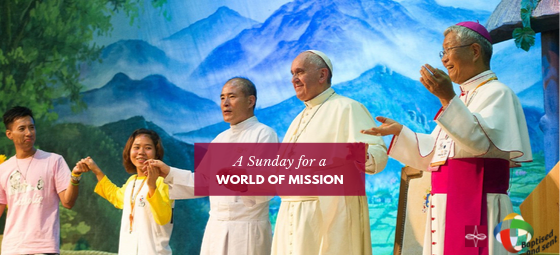

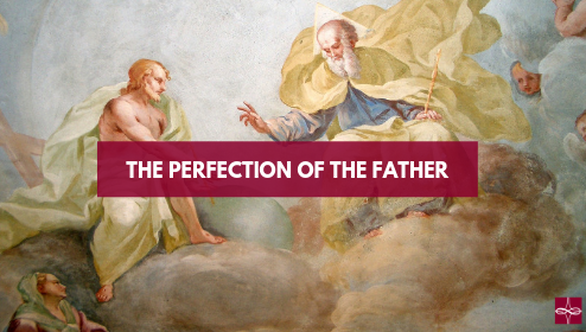

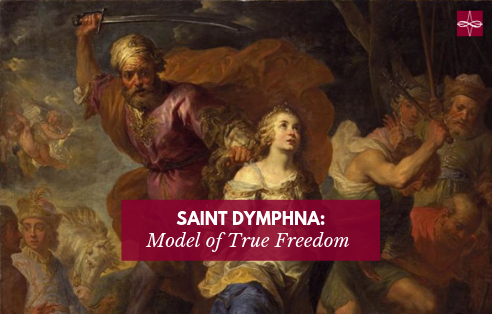

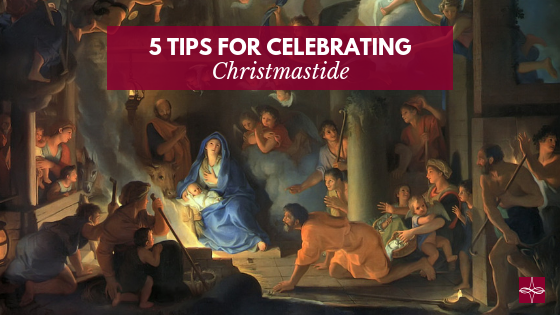

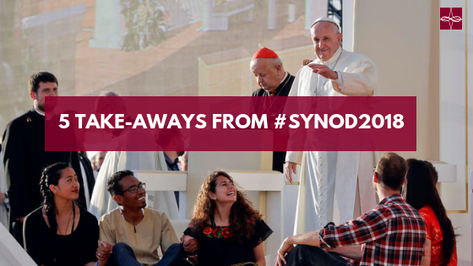

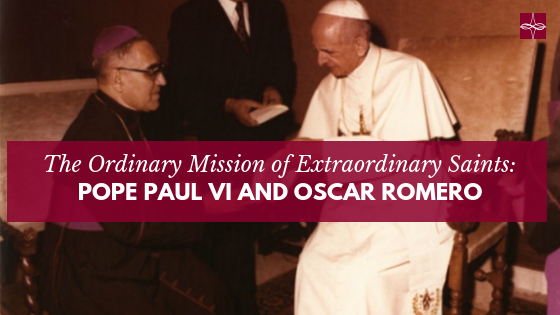

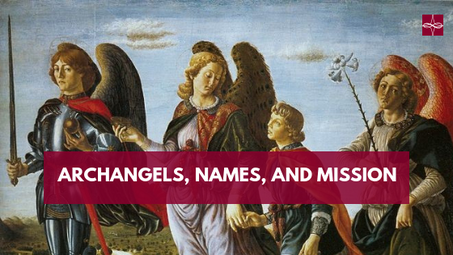



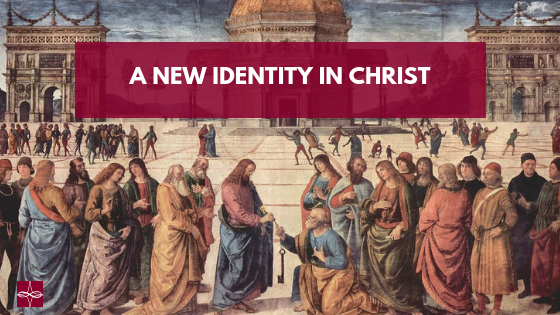

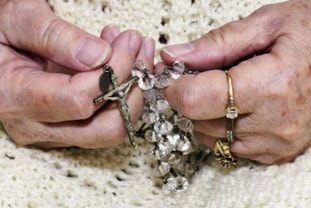
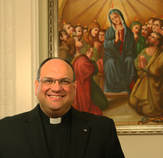
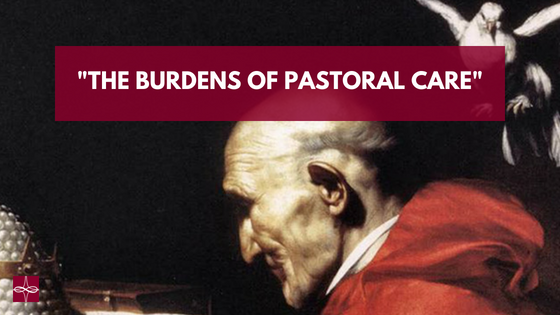

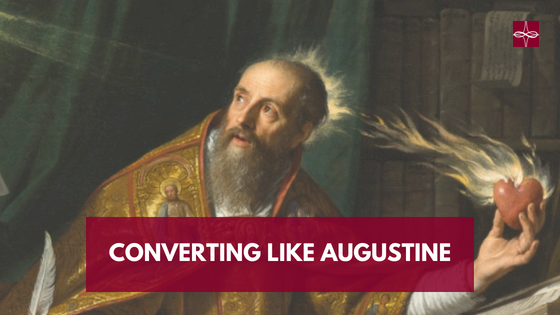

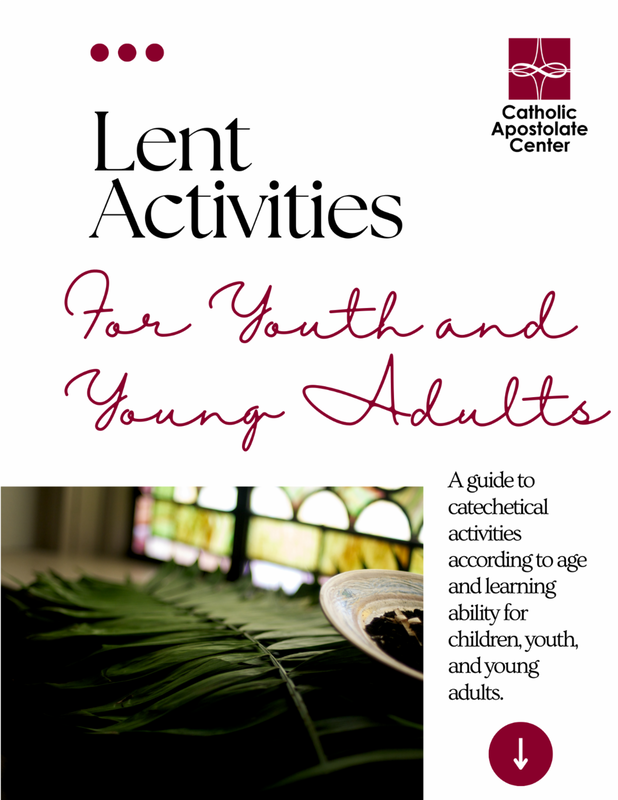
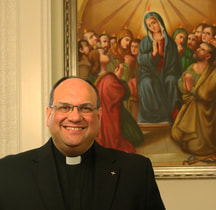


 RSS Feed
RSS Feed